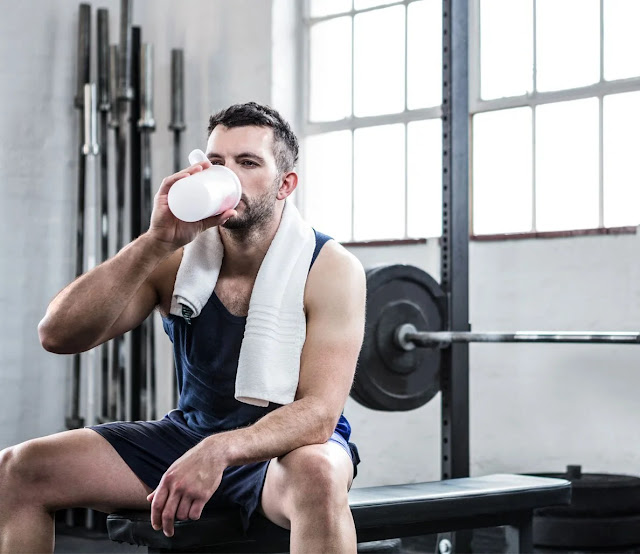The good news is that if you have a balanced diet, you’re probably already
getting enough protein
Everyone knows if you want to build muscle you have to start eating more protein. So to be on the safe side you should down a protein shake the moment you so much as look at a dumbbell, otherwise all that training will go to waste, right?“One of the biggest myths is that eating large amounts of protein will lead to bigger muscles,” says specialist dietitian Susan Short, who is a spokesperson for the British Dietetic Association. “Providing that energy requirements are met through a healthy, balanced diet, enough protein will be consumed.”
The good news is that if you have a balanced diet, you’re probably already
getting enough protein
We spoke to Short to get more information about what protein requirements really are, and how they change if you are exercising regularly.
How much protein do you need in a normal diet?
Protein requirements for the general population are 0.8-1.2 per kg of bodyweight a day. This should ideally be evenly distributed every three to four hours across the day.
Do these requirements change if you’re exercising a lot?
Strength athletes or those involved in high-volume, high-intensity training will require more protein than the general population at 1.2-2g per kg of bodyweight per day, and endurance athletes will require 1.2-1.8g per kg of bodyweight.
How quickly should you aim to get some protein after training, and how much do you need?
Studies have shown that including 15-20g of protein in a post-workout meal or snack can boost glycogen storage, reduce muscle soreness and promote muscle repair. Time-wise, anything up to 24 hours after working out is fine but you may see reduced effects the longer you leave it.
See related:
The Only Supplements You Need To Build Muscle And Strength
If you are looking to build muscle and training a lot, what other nutrients do you need to think about?
Protein is important, but building muscle happens because of a combination of resistance training and eating a diet that contains enough energy and carbohydrate to meet your requirements. If you concentrate on having a high protein intake without enough carbohydrates then that protein gets used as energy instead, not to build muscle. A varied diet including foods containing carbohydrates is key because muscles rely on carbohydrates for fuel.Including at least five portions of fruit and vegetables a day, and keeping your intake varied, will ensure a wide range of vitamins and minerals are also included in your diet.
Finally, staying hydrated is essential for performance. Stay hydrated throughout the day and especially before, during and after exercise to prevent dehydration and maximise performance.

Comments
Post a Comment